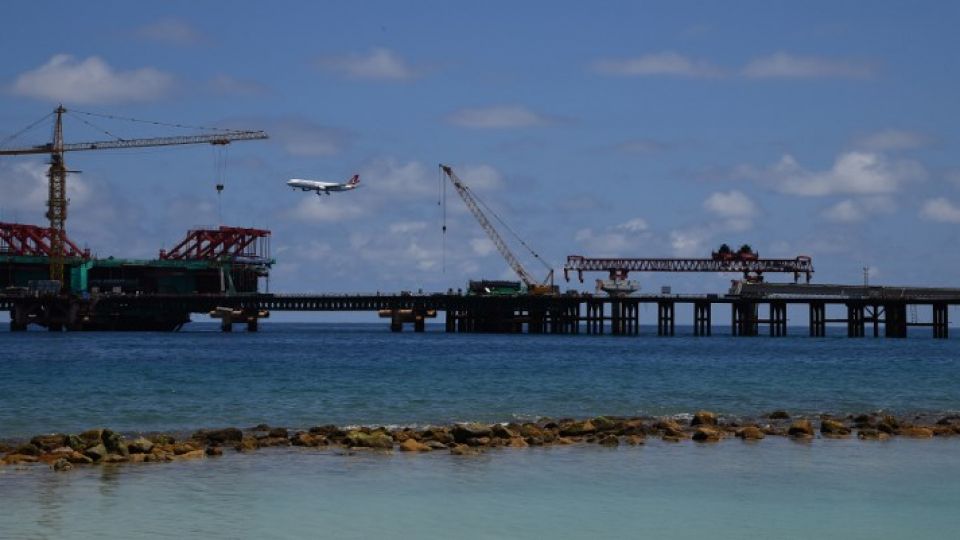April 21, 2019
It remains to be seen how recent elections will change geopolitical realities in the island nation.
Earlier this month, a former president of the tiny Indian Ocean island nation of Maldives who was hounded and forced into exile after he lost power came back with a bang.
11 years after multi-party elections were mandated by the 2008 Constitution, ex-president Mohammed Nasheed was exultant as the results of the parliamentary polls came in.
His Maldivian Democratic Party (MDP) had won a two-third majority.
The MDP, led by his close associate and President of Maldives Ibrahim Mohammed Solih who himself had narrowly won the September 2018 presidential poll, got 65 seats in the 87-member People’s Majlis (Parliament).
Nasheed termed the victory “a new, yellow dawn” (the MDP’s party colour is a bright yellow) for the country, speaking in the capital Male after the results.
But such is the geostrategic importance of the Maldives, caught as it is in a rivalry between the two regional behemoths India and China, that an even bigger sigh of relief was let out by Foreign Office mandarins in New Delhi.
After all, leaders considered sympathetic to India’s concerns were in again.
Equally, their counterparts in Beijing would presumably have had deeply furrowed brows as they politely welcomed the election results.
And hoped their assiduous cultivation of outgoing President Abdulla Yameen’s regime as well as their massive investments in the Maldives over the past decade wouldn’t be in vain.
India, for its part, has been projecting the win by the MDP in both presidential and parliamentary elections as a return of vibrant democracy to the island nation.
It is a fact that Yameen, currently in pre-trial detention on money laundering charges, and his Progressive Party of Maldives used the president’s executive powers to shackle the judiciary, impose an emergency and muzzle the media.
But he also moved the Maldives perceptibly closer to China and away from India’s sphere of influence, ignoring New Delhi’s security concerns repeatedly which really rankled the Indians who considered Yameen’s regime ‘unfriendly’.
It is in this light Nasheed’s statement — that the massive win for the MDP would enable the party to implement its reform agenda — should be seen.
For, the main election promise of the MDP was to switch the country from a presidential form of government to a parliamentary one.
The Nasheed-Solih duo have argued that an executive presidency is unsuitable for a small country with deeply polarised and fractious politics.
Now, with a massive mandate, the MDP government is expected to ram through the required Constitutional amendment to give effect to the switch.
The MDP also campaigned for its “Agenda 19” which comprises 19 ‘concept papers’ that will form the basis of the government’s legislative agenda.
It includes promulgation of laws to introduce a minimum wage, unemployment benefits and a personal income-tax.
Strengthening the asset disclosure regime, pursuing transitional justice and reforming the judiciary are also high on MDP’s list of priorities.
These moves are being seen as a clear attempt to hold the previous ‘anti-India’ regime’s leaders to account.
Maldives, it may be recalled, was the theatre of India’s first armed intervention in the Indian Ocean region in 1988 when paratroopers went in on the request of the then president Maumoon Abdul Gayoom who faced an attempted coup.
Indian troops quelled the attempt to overthrow him, the Maldivians were suitably grateful, and very close bonds developed between the two nations.
But over the past decade China has become a major player in the Maldives and garnered support from various quarters. Indeed, Chinese loans for projects account for around 70% of Maldives’ national debt.
China’s infrastructure projects in the Maldives include a bridge linking the capital Malé and the airport, and construction of multiple housing units. The total Chinese debt is estimated to be between $1.5 billion and $3 billion.
The new government has said it is still trying to figure out the “causes for the country’s dire economic/debt situation”.
New Delhi suspects its strategic depth was sought to be limited in its own backyard, as it were, by Beijing’s policy of ‘encirclement’. It is a claim vociferously denied by China which says no such policy exists.
But India, which has only itself to blame for the deterioration of bilateral relations with Maldives over the past 15 years when it clearly took its eyes off the ball, believes it has regained its leverage after the election results.
In fact, New Delhi announced financial assistance of $1.4 billion for the island nation in December 2018, ostensibly to help Male break free of Beijing’s “debt-for-leverage” model of diplomacy.
High-end tourism, a major source of revenue and employment in the Maldives, also benefits from collaboration with Indian hospitality and allied service-provider companies.
The Solih Administration has signed a spate of agreements between the Maldives and India on enhanced security cooperation in the Indian Ocean region, deeper trade ties and easy work visas for professionals. A slew of high-level bilateral visits has also served to cement relations.
But China too looms large and is very much in the game especially given its economic prowess and diplomatic heft.
The new Maldivian regime is expected to re-calibrate ties with China to correct its ‘tilt’ of recent years while simultaneously ensuring the country does not become an Indian client-state.
It is a difficult tightrope to walk.
But the island’s economic prosperity, social cohesion, fight against radicalisation among its majority Muslim population and security depend on how successfully Nasheed-Solih negotiate this tricky path.


